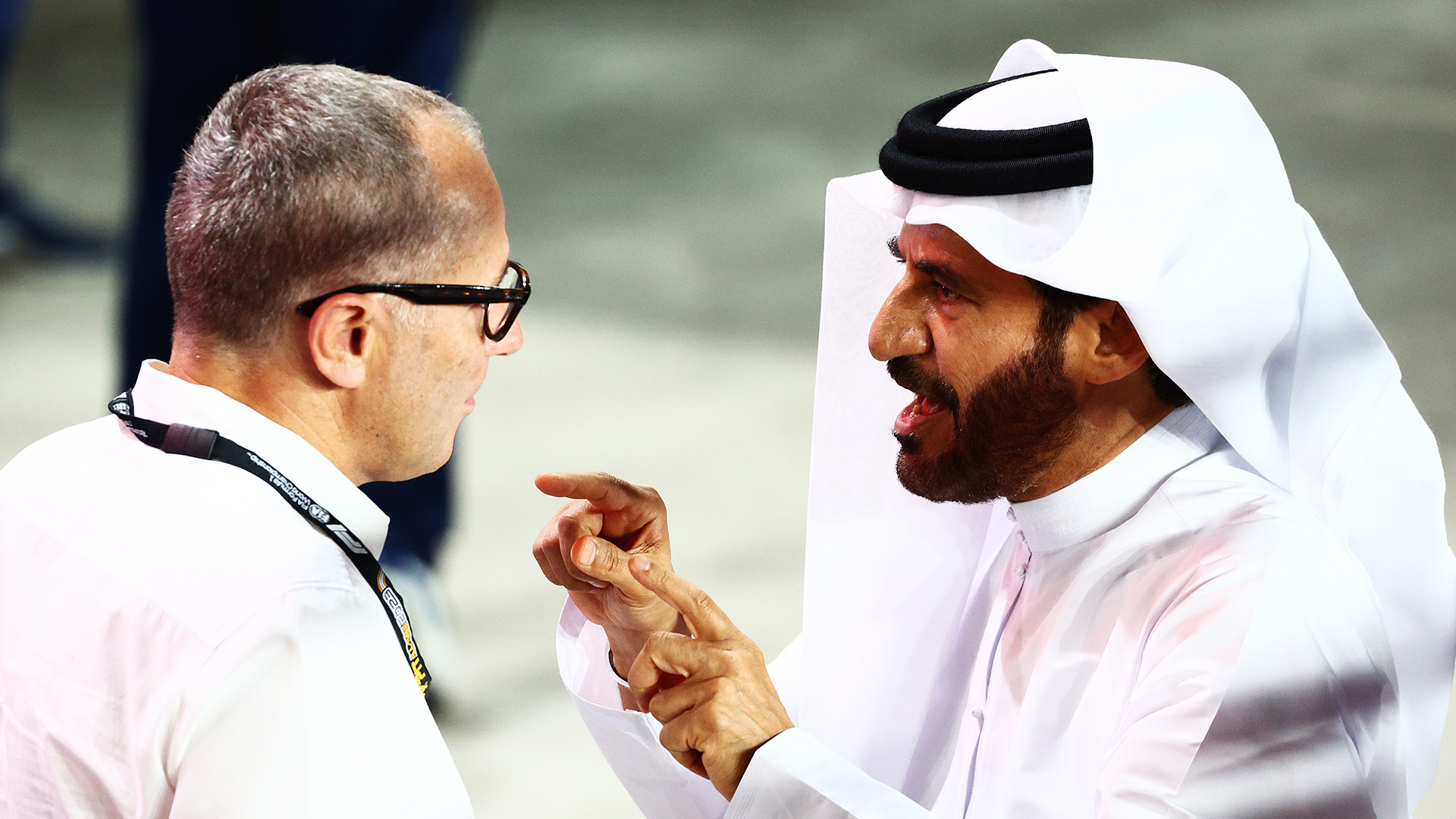

Michael Andretti’s place on the Formula 1 grid is far from a given. Even though the FIA approved the American team for competition in F1, there’s still a major hurdle to be cleared. A political one, that can’t simply be vaulted over by allowing Andretti to compete. Andretti may be the smoke, but a brewing war between the FIA and Formula 1 Management (FOM) is the real fire.
When speaking to Motorsport.com, FIA President Mohammed Ben Sulayem said that he is “very optimistic” that Andretti will get approval from F1. He continued, apparently unprompted, saying “We don’t have to go to court, and I don’t think any of us will go to court, I mean, maybe it sounds very exciting and thrilling to the media, but it will not go to court. I’m sure of that. Why should we go to court?”
Ben Sulayem’s comments reflect a situation brewing since Andretti first tendered its interest in F1, and it also reads like somebody with a lot to worry about. The FIA believes Andretti fits the bill for an 11th team—manufacturer backing and real intent to compete—and emphatically supports their entry into F1. But F1 isn’t convinced, and has acted borderline hostile to Andretti. All of this points to a growing political war between F1 and the FIA.

F1 and the FIA are two different entities. The former holds the commercial rights to the championship; the TV deals, teams, and the likenesses of the cars are in the purview of F1. The FIA handles the sporting side: rule enforcement, tracks, and safety. These two entities have been at odds before, of course.
Longtime fans will remember the FISA-FOCA war of the ’80s, when FISA (an early version of the FIA), and the Formula One Constructors Association (FOCA, what became FOM), shaped modern F1. The two sides battled over prize money, regulations, and commercial rights using Grand Prix boycotts and politics until the first Concorde Agreement was signed in 1981.
Before that, teams often wouldn’t compete in a full world championship, and no clear commercial rights ownership existed. At that time, former F1 boss Bernie Ecclestone consolidated F1 teams into a unified entity with the collective power to bargain with the FIA. It’s a trend that continues today, where F1 teams and FOM protect the perceived value of F1 against outside influence. You can’t simply jump in with the so-called “Piranha Club.”

F1 CEO Stefano Domenicali and several team bosses have all risen together in chorus against Andretti’s ambition to join the grid. They’ve cited commercial issues, expressed concern about how Andretti will dilute the prize pool, and believe that an 11th team is unhealthy for a perfectly strong and commercially powerful sport. In the near past, teams have been known to come and go, and only recently has the grid reached true stability. As recently as 2016, there was an 11th team.
This Andretti struggle has echoes of an old-fashioned FIA-F1 war. And it’s a war the FIA has lost—at least, when it’s moved against F1. Between the end of the FISA-FOCA war through to the 2000s, F1 and the FIA were largely aligned in ideology and leadership, with Ecclestone and former FIA President Max Mosley sharing a close relationship. Jean Todt, the FIA President before Ben Sulayem, also worked with Ecclestone and Liberty Media after the American company acquired F1 in 2017.

This is uncharted territory for modern F1. For the first time in decades, F1 is an unbelievably strong commercial property. Liberty Media owns the sport, but the FIA has the opportunity and, based on Ben Sulayem’s comments, the willpower to try and actively shape F1’s future in a way it hasn’t for years. But the FIA has often faltered where F1 has succeeded. For most of F1’s history, it has succeeded in spite of the FIA. There is no doubting the center of power in F1 is the organization that controls the teams and commercial agreements, not the body that makes the rules.
While Andretti fights to get on the F1 grid in 2025, what is happening is a war for power in F1. Despite the FIA trying to press F1 to allow an 11th team, it is still very clear that F1 holds the keys to the castle.
Got a tip? Email tips@thedrive.com